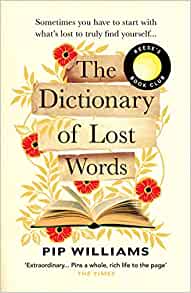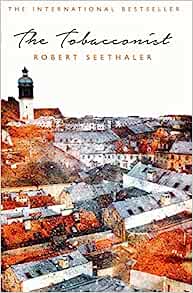
The book choice for July was the fascinating The Dictionary of Lost Words by Pip Williams. This tale, partly based on real events, follows the fictional Esme Nicholl and the very real creation of the Oxford English Dictionary. So far, so not particularly interesting you might think. Yet this isn’t a book about how the OED was created (although if you would like to know more about that then I suggest reading The Making of the Oxford English Dictionary) but more a story of what was missing from the Dictionary – women.
We found the concept of the book intriguing and engaging as it looked at how and why certain words were excluded, and showed how words were not considered equally. The hierarchy involved in the way that words were looked at and chosen was fascinating. The novel’s detailed background told us about the (real) Dr Murray and his struggles for funding the OED, and how the team used pigeonholes and paper slips to consider a word for inclusion. However as the decision makers were men, the novel showed how the male only viewpoint skewed the formation of the Dictionary. Men were the ones who decided on the suitability or otherwise of words, but missed nuances, and excluded words they felt were unacceptable. As a child the character Esme collected these rejected words. As an adult, her word collection was reclaimed and published – although this was again by a man.
We felt that the book was dual purpose, as it showed how the Dictionary was came to exist, but also looked at the role of women. The timeline of the novel was moved in order to combine the creation of the Dictionary with the rise of the Suffragette and Suffragist, but we felt that this emphasised the roles that women had – as servants (Lizzy), troublemakers (Tilda), or just unable to be a visible part of the Oxford English Dictionary that they worked so hard on (Esme, Ditte, Elsie, and Rosfrith). Some of the characters didn’t feel as fully formed as others – for example both of Esme’s love interests seemed quite two dimensional and convenient (especially in the case of Gareth), which was disappointing. It was felt by one of our readers that the Dictionary did offer immortality to those involved, even if many of the contributors were unnamed just because of their gender.
The Dictionary of Lost Words had a bit of a mixed response from our members, with some liking it, some loving it, and others felt that the story was challenging, frustrating, and not what they had been expecting. Not everyone finished the book, but those who did generally found it rewarding and interesting. The ending and epilogue did disappoint the majority of our group as it had seemed quite pointless. We felt that the story could have stopped earlier and still been as satisfying to read. It was certainly a thought provoking and challenging read which many of the group said that they would definitely recommend to others.
August’s book is The Tobacconist, written by Robert Seethaler and translated from the German by Charlotte Collins.
This is the story of Franz, an Austrian teenager from a small village who moves to Vienna to become apprentice to an elderly tobacconist. Franz suffers from home sickness, falls in love, and receives romantic advice from a regular customer, known as the Professor. However this is the 1930s, the Professor is Sigmund Freud, and Hitler is on the rise…
If you want to discuss it (or anything else you’ve read recently), we meet on Teams on Wednesday 16th August at 1pm. For an invitation, email Library@swft.nhs.uk or call x 4287
Haven’t got a copy? Come to the Education Centre Library to borrow one.

